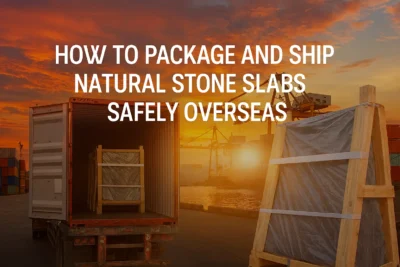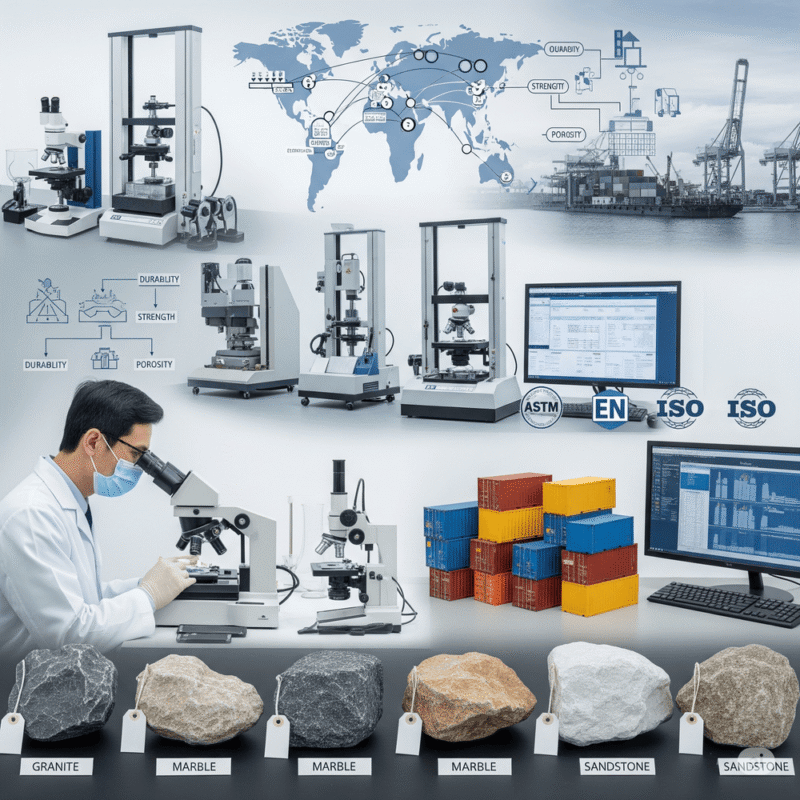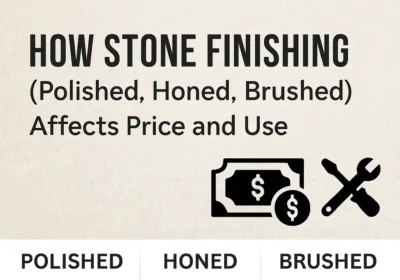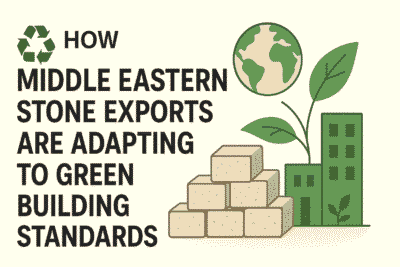
How to package and ship natural stone slabs safely
International shipping of natural stone slabs requires professional and secure packaging to prevent breakage, scratches, moisture damage, and costly product loss.

In the construction industry, selecting the right building stone plays a vital role in the durability, aesthetics, and structural integrity of any project. But what ensures the smart selection of such materials is an accurate quality assessment process. Proper quality evaluation not only enhances customer satisfaction but also directly impacts pricing, export potential, and competitiveness in international markets.
Current Market Status of Building Stones
The global building stone market—particularly in key producer countries like Iran, Turkey, India, China, and Italy—is highly competitive and expanding. Stone quality has become a decisive factor in both domestic and export markets.
🔹 Iran, with over 60 billion tons of confirmed reserves and annual production exceeding 13 million tons, plays a major role.
🔹 However, a significant portion of Iran’s stone exports are in raw or unprocessed form, limiting their added value due to a lack of standardized quality control and processing practices.
Recent Trends and Future Outlook in Stone Quality
Global standardization is becoming a must (e.g., CE, ASTM, ISO) for stone processing and packaging.
Adoption of digital technologies for measuring size, porosity, compressive strength, and water absorption is increasing.
Buyers are now more focused on technical consistency, visual uniformity, hardness, and surface finish rather than just color or pattern.
In the near future, technical documentation and certification will become essential for entering high-value markets.
Export and Trade Opportunities through Quality
Improving quality standards and acquiring international certifications can open new export opportunities for Iranian and regional stone producers. Buyers in Europe, East Asia, Russia, and the Middle East are willing to pay a premium for stones with verified quality.
🔸 For instance, Iranian white travertine—when properly cut, polished, and packaged—can secure a strong position in luxury architectural markets abroad.
Challenges and Barriers
Lack of certified quality laboratories in some industrial zones
Traditional and imprecise processing methods still common
Limited knowledge among small producers about global quality benchmarks
Absence of technical specs in packaging or export documents
Competitive Analysis and Related Technologies
Italy and Turkey lead in quality through advanced CNC machines, laser scanning, and smart polishing systems.
China and India have made significant investments in modern production lines, balancing cost and quality effectively.
By contrast, many Iranian factories still rely on outdated equipment, which reduces precision and product consistency.
Strategic Recommendations for Enhancing Quality
Establish advanced testing labs in stone industrial zones
Invest in high-precision cutting and surface finishing machinery
Train workforce on international quality control methods
Adopt market-specific standards (e.g., ASTM for the U.S., CE for Europe)
Include full technical specifications in product catalogs and shipping documents
Conclusion
In today’s competitive global market, having access to good stone is not enough—you must process, test, and document it correctly. A scientific and standardized approach to building stone quality assessment opens doors to high-value markets, builds brand trust, and increases export revenues.
Call to Action 📩 Are you a stone producer or exporter aiming to improve quality or reach global markets?
Contact our team today to receive expert consulting on quality certifications, export documentation, and international buyer expectations.

International shipping of natural stone slabs requires professional and secure packaging to prevent breakage, scratches, moisture damage, and costly product loss.

Natural stone is one of the most versatile building materials in the world. However, its final look, performance, and even price depend greatly on the finishing method applied

The global shift toward sustainable construction is transforming the way natural stone is quarried, processed, and exported.
